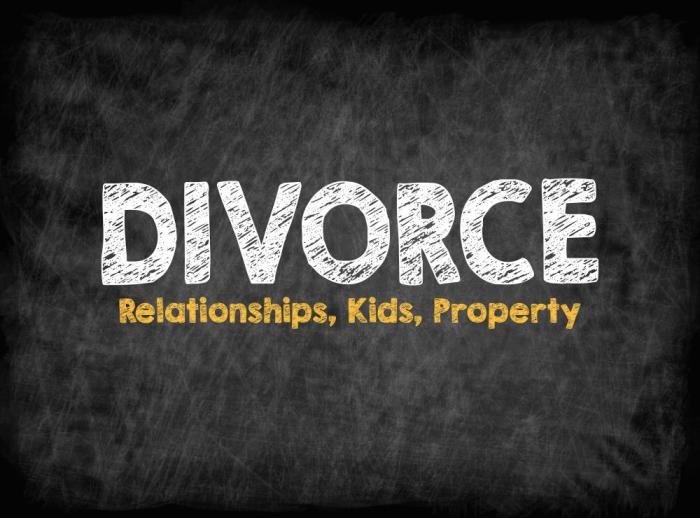
Navigating a divorce in Brandon, Florida, can be a complex and emotionally challenging experience. Understanding Florida’s family law statutes, the process of filing for divorce, and the crucial role of a skilled attorney are paramount. This guide provides a comprehensive overview of the legal landscape surrounding divorce in Brandon, equipping individuals with the knowledge needed to make informed decisions during this difficult time. It covers everything from understanding grounds for divorce to navigating child custody disputes and asset division.
From selecting the right attorney to understanding alimony and property division, this resource aims to demystify the legal processes involved. We’ll explore the importance of attorney-client confidentiality, different fee structures, and the potential benefits of mediation. Ultimately, our goal is to empower individuals facing divorce in Brandon, Florida, to approach their legal journey with confidence and clarity.
Brandon, Florida Family Law Overview
Navigating a divorce can be emotionally and legally complex. Understanding Florida’s family law statutes is crucial for a smoother process. This overview provides a general understanding of divorce proceedings in Brandon, Florida, and should not be considered legal advice. Always consult with a qualified attorney for personalized guidance.
Florida’s Family Law Statutes Relevant to Divorce
Florida’s family law statutes, primarily found in Chapter 61 of the Florida Statutes, govern divorce proceedings. These statutes cover a wide range of issues, including grounds for divorce, division of marital assets and debts, child custody and support, alimony, and domestic violence. The specific application of these statutes depends heavily on the unique circumstances of each case. Key areas addressed include equitable distribution of property, child support calculations based on income guidelines, and the best interests of the child standard in custody determinations.
Common Grounds for Divorce in Florida
Florida is a “no-fault” divorce state. This means that neither spouse needs to prove fault or wrongdoing to obtain a divorce. The most common grounds are simply the irretrievable breakdown of the marriage, meaning the marriage has reached a point where there is no reasonable prospect of reconciliation. While fault is not required, it can sometimes be relevant in determining issues like alimony or the division of assets. For example, adultery or domestic violence might influence the court’s decision regarding financial matters.
The Process of Filing for Divorce in Brandon, Florida
Filing for divorce in Brandon, Florida, begins with one spouse (the petitioner) filing a petition for dissolution of marriage with the Sixth Judicial Circuit Court in Hillsborough County. The petition must include information about the marriage, including the date and place of the marriage, and the parties’ assets and liabilities. The petitioner must also serve the other spouse (the respondent) with a copy of the petition and a summons. The respondent then has a specific timeframe to file a response. After the initial filings, the process typically involves discovery (exchanging information between parties), negotiations (potentially mediated), and potentially, a trial if the parties cannot reach an agreement.
Typical Divorce Proceedings Flowchart
A simplified flowchart depicting the typical divorce proceedings would look like this:
[Imagine a flowchart here. The flowchart would start with “Filing of Petition,” branch to “Service of Process,” then to “Response Filed,” then to “Discovery,” then to “Negotiation/Mediation,” and finally, to either “Settlement Agreement” or “Trial.” From “Settlement Agreement,” there would be an arrow to “Final Judgment.” From “Trial,” there would also be an arrow to “Final Judgment.”]
The flowchart illustrates the sequential nature of the divorce process. However, it’s important to note that the actual process can vary considerably depending on the complexity of the case and the willingness of the parties to cooperate. Cases with significant disagreements over property division or child custody are likely to take longer and may require more court intervention.
Finding a Suitable Attorney in Brandon, Florida
Choosing the right family law attorney is crucial during a divorce. The process is often emotionally taxing, and having a skilled and compassionate advocate can significantly impact the outcome. Careful consideration of several factors will help you find the best legal representation for your specific needs.
Criteria for Selecting a Family Law Attorney
Several key criteria should guide your attorney selection. Experience is paramount; seek an attorney with a proven track record in handling divorce cases similar to yours, considering factors like property division, child custody, and alimony. Look for attorneys with strong negotiation skills and a history of successful settlements or courtroom victories, depending on your preferred approach. Client reviews and testimonials can provide valuable insights into an attorney’s communication style, responsiveness, and overall client experience. Finally, consider the attorney’s understanding of Florida’s specific family law statutes and precedents. A deep understanding of local laws is essential for effective representation.
Types of Legal Fees Charged by Attorneys
Family law attorneys typically utilize one of several fee structures. The most common is an hourly rate, where you pay for the attorney’s time spent on your case. A flat fee may be offered for specific services, such as uncontested divorces with straightforward circumstances. Contingency fees, where the attorney’s fee is a percentage of the awarded settlement, are less common in divorce cases but might be considered in specific situations involving significant financial assets. It’s crucial to understand the fee structure upfront and request a detailed breakdown of potential costs to avoid unexpected expenses. Be wary of attorneys who are vague about their fees.
Attorney-Client Confidentiality
Attorney-client confidentiality is a cornerstone of the legal profession. This privilege protects all communications between you and your attorney from disclosure to third parties, including your spouse, without your explicit consent. This includes emails, phone calls, and meetings. This protection allows you to openly discuss sensitive information without fear of it being used against you. Exceptions to this confidentiality exist, such as in cases of suspected fraud or imminent harm. It’s vital to trust your attorney with your private information, knowing it will be handled with the utmost discretion and professionalism.
Comparison of Services Offered by Brandon, Florida Family Law Firms
The following table compares services offered by three hypothetical Brandon, Florida family law firms. Note that these are examples, and actual services and pricing may vary. Always contact the firms directly to verify information.
| Firm Name | Services Offered | Fee Structure | Languages Spoken |
|---|---|---|---|
| Example Firm A | Divorce, Child Custody, Alimony, Property Division, Mediation | Hourly Rate, Flat Fee Options | English, Spanish |
| Example Firm B | Divorce, Child Support, Adoption, Domestic Violence Cases | Hourly Rate | English |
| Example Firm C | Divorce, High-Net-Worth Divorce, Prenuptial Agreements | Hourly Rate, Retainer Fee | English, French |
Common Divorce Issues in Brandon, Florida
Divorce proceedings in Brandon, Florida, like elsewhere, often involve complex legal and emotional challenges. Understanding the common issues that arise can help individuals prepare for the process and make informed decisions. This section will explore several key areas frequently encountered in Brandon divorce cases.
Child Custody Disputes
Child custody disputes are among the most prevalent and emotionally charged issues in Brandon divorce cases. Determining legal and physical custody arrangements requires careful consideration of the child’s best interests, a principle central to Florida law. Factors considered by the court include each parent’s ability to provide a stable home environment, the child’s relationship with each parent, and the potential impact of any changes on the child’s well-being. Disputes may involve significant litigation if parents cannot reach an agreement through mediation or other alternative dispute resolution methods. The court will make a determination based on the evidence presented, aiming to create a custody plan that prioritizes the child’s welfare.
Child Support Obligations
Florida utilizes the Child Support Guidelines to determine child support obligations. These guidelines are based on a formula that considers both parents’ income and the number of children. The court may deviate from the guidelines in certain circumstances, such as extraordinary medical expenses or unique financial situations. The non-custodial parent typically pays support to the custodial parent, although the specifics depend on the agreed-upon or court-ordered custody arrangement. For example, a parent earning $60,000 annually with one child might be obligated to pay a specific amount monthly, calculated using the state’s guidelines and adjusted for any additional factors. Failure to comply with child support orders can lead to legal consequences, including wage garnishment or contempt of court.
Division of Marital Assets
Equitable distribution of marital assets is a cornerstone of Florida divorce law. This means that assets acquired during the marriage are generally divided fairly between the spouses, although not necessarily equally. The division considers several factors, including the length of the marriage, each spouse’s contributions to the marriage (financial and otherwise), and the economic circumstances of each party. Common marital assets include real estate, bank accounts, retirement funds, vehicles, and personal property. High-value assets, such as businesses or significant investments, often require professional appraisal and careful consideration in the division process. Disagreements over asset valuation or division are frequent sources of conflict and may necessitate expert testimony or protracted legal proceedings.
Prenuptial Agreements
Prenuptial agreements, or pre-nuptial agreements, are contracts entered into before marriage that Artikel how assets and property will be divided in the event of a divorce. These agreements can significantly impact divorce proceedings by pre-determining the division of assets and potentially avoiding lengthy disputes. To be legally enforceable, a prenuptial agreement must be entered into freely and voluntarily, with full disclosure of each party’s assets and liabilities. A properly drafted prenuptial agreement can provide clarity and certainty during an already stressful time. However, if a prenuptial agreement is found to be unfair or improperly obtained, a court may not enforce it. Therefore, seeking legal counsel when creating or reviewing a prenuptial agreement is crucial to ensure its validity and effectiveness.
Specific Legal Aspects of Divorce

Navigating the legal complexities of divorce in Florida requires a clear understanding of several key aspects. This section will Artikel some of the most significant legal considerations faced by individuals undergoing divorce proceedings in the state. Understanding these elements is crucial for making informed decisions and protecting your rights throughout the process.
Alimony in Florida
Alimony, also known as spousal support, is a payment made by one spouse to the other after a divorce. Florida courts consider several factors when determining whether to award alimony and the amount, including the length of the marriage, the earning capacity of each spouse, the standard of living during the marriage, and the needs of each spouse. There are several types of alimony in Florida, each with its own duration and purpose. Permanent alimony, for instance, is awarded indefinitely, while temporary alimony is granted for a specified period. Rehabilitative alimony aims to help a spouse become self-supporting, while bridge-the-gap alimony provides temporary support during a transition period. The specific type and amount of alimony awarded are determined on a case-by-case basis, considering the unique circumstances of each divorce.
Property Division in Florida
Florida is an equitable distribution state, meaning marital assets and liabilities are divided fairly between the spouses, not necessarily equally. The court considers numerous factors in determining equitable distribution, including the length of the marriage, each spouse’s contributions to the marriage (financial and non-financial), and the economic circumstances of each spouse. The process involves identifying all marital assets and debts, valuing them, and then dividing them equitably. This can include real estate, bank accounts, retirement accounts, vehicles, and other personal property. Pre-marital assets, also known as separate property, are generally not subject to division. A thorough and accurate accounting of all assets and debts is essential for a fair and efficient property division.
Domestic Violence in Divorce Cases
Domestic violence significantly impacts divorce proceedings in Florida. If one spouse alleges domestic violence, the court can issue temporary injunctions to protect the victim, including orders preventing the abuser from contacting the victim or coming near their home. In addition, allegations of domestic violence can influence the court’s decisions regarding custody, visitation, and alimony. A finding of domestic violence can result in a more favorable outcome for the victim in these areas. It’s crucial for victims to document any instances of abuse and seek legal counsel to protect their rights and safety. Evidence of domestic violence, such as police reports, medical records, and witness testimonies, plays a vital role in the court’s decision-making process.
Frequently Asked Questions Regarding Divorce
Understanding the divorce process can be challenging, and many questions arise throughout the proceedings. To provide clarity, here are answers to some common questions:
- How long does a divorce take in Florida? The length of a divorce varies significantly depending on the complexity of the case and the cooperation of the parties. Uncontested divorces may be finalized relatively quickly, while highly contested cases can take much longer.
- What is the role of a mediator in a divorce? A mediator facilitates communication and negotiation between the parties, helping them reach mutually agreeable settlements on issues such as child custody, alimony, and property division. Mediation can significantly reduce the time and cost of litigation.
- Can I represent myself in a divorce? Yes, you can represent yourself in a divorce proceeding (pro se), but it’s often advisable to seek legal counsel, especially in complex cases. An attorney can provide guidance, protect your rights, and ensure you understand the legal process.
- What factors determine child custody in Florida? Florida courts prioritize the best interests of the child when determining custody arrangements. Factors considered include the child’s needs, the parents’ ability to provide for the child’s needs, and the relationship between the child and each parent. The court may award sole custody, joint custody, or a combination of both.
- What happens to retirement accounts in a divorce? Retirement accounts are considered marital assets and are subject to equitable distribution in a Florida divorce. The court will determine how these accounts are divided, often through a Qualified Domestic Relations Order (QDRO).
Resources and Support for Divorcing Individuals

Navigating a divorce can be emotionally and financially challenging. Fortunately, several resources and support systems are available in Brandon, Florida, to assist individuals during this difficult transition. Understanding these options can significantly improve the process and lead to more positive outcomes.
Local Resources in Brandon, Florida
The Brandon community offers various resources specifically designed to help individuals going through a divorce. These resources often provide counseling, support groups, and practical assistance to manage the complexities of separation and divorce. Many churches and community centers host support groups led by trained professionals or volunteers, offering a safe space for sharing experiences and receiving emotional support. Additionally, several non-profit organizations in the area provide financial assistance, housing assistance, or job training programs for individuals facing financial hardship due to divorce. These services can be crucial for maintaining stability during this transition period. Contacting local churches, community centers, or social service agencies is a good starting point to identify specific programs available in Brandon.
Obtaining Legal Aid or Pro Bono Services
Legal aid organizations and pro bono programs offer legal assistance to individuals who cannot afford legal representation. These services are typically available to those who meet specific income requirements. The application process usually involves providing documentation of income and assets to demonstrate financial need. Once approved, legal aid organizations can provide a range of services, from legal advice and document preparation to representation in court. Several organizations in the Tampa Bay area offer such services, and their websites or local bar associations can provide referral information. Eligibility criteria vary, and it’s important to contact these organizations directly to inquire about their specific requirements and application procedures. Pro bono services, offered by attorneys on a volunteer basis, may also be available through bar associations or other community organizations.
Benefits of Mediation or Alternative Dispute Resolution
Mediation and other forms of alternative dispute resolution (ADR) offer a less adversarial approach to resolving divorce-related issues compared to traditional litigation. In mediation, a neutral third party helps the divorcing couple communicate effectively and reach mutually agreeable solutions. This process can be significantly less stressful and time-consuming than going to court, often resulting in faster resolution and reduced legal fees. ADR methods such as collaborative divorce also promote cooperation and focus on finding solutions that work best for the entire family, including children. These approaches often lead to more amicable settlements and minimize conflict, contributing to a more positive post-divorce relationship between the former spouses. The benefits include reduced legal costs, preserved family relationships, and faster resolution times.
A Supportive Community Resource Center
Imagine a bright, welcoming space – a community resource center dedicated to supporting individuals navigating divorce. Comfortable seating areas encourage conversation and informal support groups. Informative pamphlets and brochures line the walls, detailing local resources and legal aid options. A dedicated staff member greets visitors, offering a warm welcome and guidance through available services. Quiet rooms are available for private consultations with counselors or legal professionals. Computer stations offer access to online resources and legal forms. The atmosphere is supportive and non-judgmental, fostering a sense of community and shared experience among those going through similar challenges. Regular workshops and seminars cover topics such as financial planning after divorce, co-parenting strategies, and emotional well-being. This center serves as a hub, connecting individuals with the support and resources they need to successfully transition through this life change.
Outcome Summary

Successfully navigating a divorce in Brandon, Florida, requires a clear understanding of the legal procedures and the support of a qualified attorney. This guide has provided a foundational overview of Florida family law, highlighting key aspects of the divorce process, including grounds for divorce, child custody, asset division, and alimony. Remember that seeking professional legal counsel is crucial to protect your rights and interests. By understanding the legal landscape and utilizing available resources, individuals can approach their divorce with greater confidence and a clearer path towards resolution.
Commonly Asked Questions
What are the common grounds for divorce in Florida?
Irreconcilable differences, adultery, abandonment, and habitual intemperance are common grounds.
How long does a divorce typically take in Florida?
The timeframe varies greatly depending on the complexity of the case, but it can range from several months to over a year.
Can I represent myself in a divorce case?
While you can, it’s generally recommended to seek legal counsel due to the complexities of family law.
What is the role of a mediator in a divorce?
A mediator helps facilitate communication and negotiation between divorcing parties to reach a mutually agreeable settlement.





